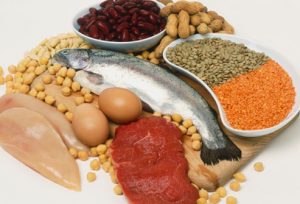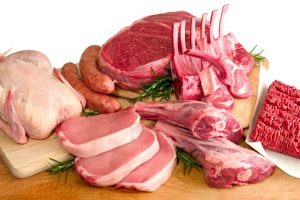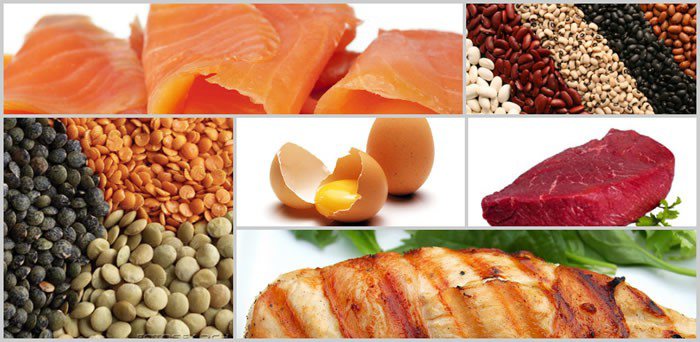Proteins are responsible for the structure, function and regulation of cells, tissues and organs. They speed up chemical reactions in the body and transport materials throughout the body. Proteins are called the building blocks of life. Proteins play a vital role in the human body. We were taught that excess protein in the body is converted to carbohydrate and as such, has no side effect unlike carbohydrate which leads to obesity. Excess protein may be just as bad as carbohydrate.
Protein is derived from plants (legumes, nuts, seeds, soy products) and animals (dairy foods, poultry, eggs, seafood, and meat). While eating too much protein can be harmful, not getting enough protein is also problematic. Protein malnutrition can lead to decreased muscle mass, hair and skin changes, irritability, a weakened immune system and even swelling or shock.

In the consumption of protein-rich foods, nitrogen is absorbed. The body utilizes the nitrogen to promote protein synthesis and create compounds and amino acids that influence growth, hormones, brain functions and the immune system. The kidneys work to filter out nitrogen byproducts but when excess protein is taken in, the kidneys are forced to work harder than normal to flush all extra nitrogen. This workload can cause kidney damage.
The liver’s ability to break down and excrete protein may be altered. This can lead to toxin buildup in the blood or even death. A study published in 2012 in the “American Journal of Kidney Disease” found that following a high-protein diet over the long term may lead to kidney disease.

Red meat which is a good source of protein includes fresh beef, pork, lamb, mutton and veal, as well as processed meats that come from these animal sources. Though rich in protein, iron, B vitamins and zinc, their saturated fat and cholesterol content can adversely affect your health, and the manner in which red meat is produced, processed and cooked can also impact your well-being. Limiting your intake of this type of meat can improve your overall health and lower your risk of developing diseases such as:
Cardiovascular Disease
Animal-based dietary fats, such as the ones found in red meat, can contribute to risk factors associated with heart disease and stroke. They add cholesterol and saturated fats to your diet, which can increase the accumulation of a fatty substance called plaque to the walls lining your arteries. In this condition, known as atherosclerosis, your heart works harder to pump blood through the narrowed blood vessels, increasing your chance of heart attack. The fats in red meat can also cause you to put on extra weight, a risk factor for developing high blood pressure, which is also a risk factor for cardiovascular disease.
Cancer
Red meat can increase your likelihood of developing cancer in several ways. The fat content of red meat might be a contributing factor in the incidence of estrogen- and progesterone-sensitive breast cancer, and, in addition, hormones used in the production of red meat can exhibit estrogenic activity and might also boost your breast cancer risk.
Diabetes
The greater the amount of red meat consumed, the greater the risk of developing type-2 diabetes. Processed red meats can contain preservatives such as nitrosoamines that are toxic to the pancreatic cells that produce insulin. Chemical changes to red meat during cooking or processing can lead to insulin resistance in cells and tissues. The cholesterol content of red meats is a contributing agent to an increased risk of developing the disease.
Cooking methods for red meat – and for poultry and fish as well – can affect the health risks associated with consuming animal proteins. Pan-frying at high heat or grilling over an open flame can cause the amino acids, creatine and sugar in red meat to react and form heterocyclic amines, compounds that can cause gene mutations. These chemicals might alter the structure of your DNA and potentially increase your cancer risk. Cooking red meat over low heat and avoiding grilled red meat can help limit your intake of the chemicals, thereby reducing the risk of developing such diseases.
Sincerely, thank you for reading.
You are the reason why we keep telling these stories. Our mission is to inform, educate, and inspire through objective storytelling and journalism. We are deeply grateful for your belief in our mission. To enhance your user experience, we've got off a lot of things such as obstructive ads. However, telling these stories and making these researches require funds. If you enjoy our content and you want to see us continue, please kindly support us by donating here.You can also send us an email hello@yolar.co. Thank you for your continuous support. ![]()



